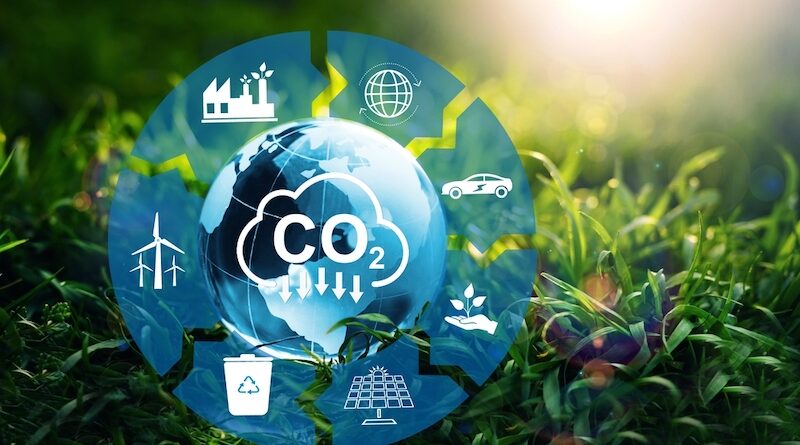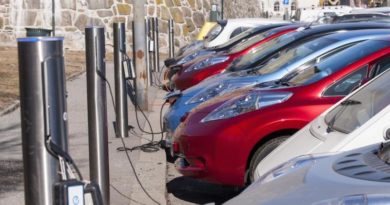
Power deep tech innovation for a net-zero economy
The race is on. Countries all over the world are competing for new technology to protect their industries, while mitigating the negative impact of climate change. For the European economy to remain relevant, the EU must invest in deep tech, particularly in its subsets clean and net-zero technologies.
Deep tech is innovation based on scientific or engineering discoveries, and providing advanced and emerging technology solutions to deep societal challenges.
AI, quantum computing, and biotechnology are some examples of deep tech that is vital to deal with climate change, the energy crisis, and global public health.
The deep tech market has been growing fast in recent years. European deep tech companies are valued at a combined €700 billion, while deep tech accounts for a quarter of all European venture capital, and the European venture capital funding in deep tech has the potential to grow much more. It is interesting to note that climate tech’s share of deep tech funding has increased more than fivefold in the past six years.
Deep tech represents a great opportunity to boost the EU’s economy, for EU industrial players to stay ahead of the curve and remain competitive. By investing in deep tech, including clean and net-zero tech, we will provide the tools to increase the efficiency and productivity of existing industries.
It will help develop new, high-value products and services, bringing new opportunities to enter or expand business in emerging markets. Additionally, it will create more and better jobs in Europe.
Imagine a world where renewable energy is cheap and abundant, where AI algorithms can optimize everything from traffic flow to supply chain management, and where precision medicine can cure diseases that were once thought incurable. These are just a few examples of the transformative power of this new wave of deep tech innovation.
To support such development and growth, in 2022, we have launched the New European Innovation Agenda to position the EU as a leader in the new wave of deep tech innovation and start-ups. The Agenda is a central contribution to the recent EU initiatives to boost a net-zero industry and ensure we deliver the objectives of the European Green Deal on time, such as the Green Deal Industrial Plan, the Net Zero Act and the Critical Raw Materials Act.
Through the consultations and co-creation processes with stakeholders, we have ensured the Agenda reflects the priorities of those impacted on the ground, from innovation ecosystem leaders, start-ups, unicorns, women founders, women working in the capital venture, universities, and businesses.
This new vision provides Europe the right instruments to boost Europe’s innovation performance and push deep tech innovation, including clean technology.
It aims to increase access to finance for European start-ups and scale-ups by unlocking new sources of private capital to invest in and benefit from the scaling of European deep-tech start-ups. It suggests new approaches to regulation, such as regulatory sandboxes, test beds, living labs, and innovation procurement, so innovators can experiment with new ideas.
In addition, the New European Innovation Agenda proposes the regional innovation valleys to strengthen and better connect innovation players throughout Europe, including in regions lagging behind. It will also support EU Countries and regions direct, at least, €10 billion to concrete interregional innovation projects.
Moreover, the New European Innovation Agenda aims to attract and retain talent in Europe, for example by training 1 million deep tech talents, increasing support for women innovators, and innovating with start-up employees’ stock options. Lastly, it will improve policymaking tools through clearer and comparable terminology, indicators, and data sets, which can inform policies at all levels across the EU and ensure better policy coordination at the European level.
It is clear that to achieve a net-zero economy, we must invest in research and innovation for deep tech. If EU players join forces, Europe can win the global clean-tech race. Indeed, we have competitive advantage, as we are worldwide leaders in science and engineering. Using the opportunities offered by the New European Innovation Agenda and other EU initiatives, we can leverage clean tech as the key to unlock the digital and green transitions of our economy and society.
Together, we will power innovation for a net-zero economy. With deep tech, we will simultaneously support the economy and advance solutions to tackle the most pressing challenges of our time, namely reducing the reliance on fossil fuels, increasing global food security, and improving healthcare.
Let us make Europe a leader in the new wave of deep tech innovation and start-ups.




